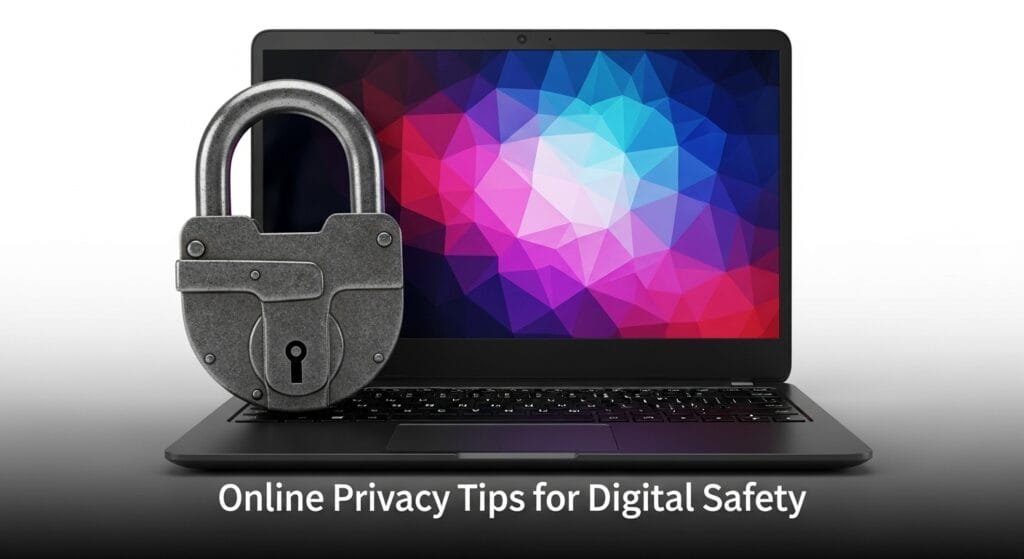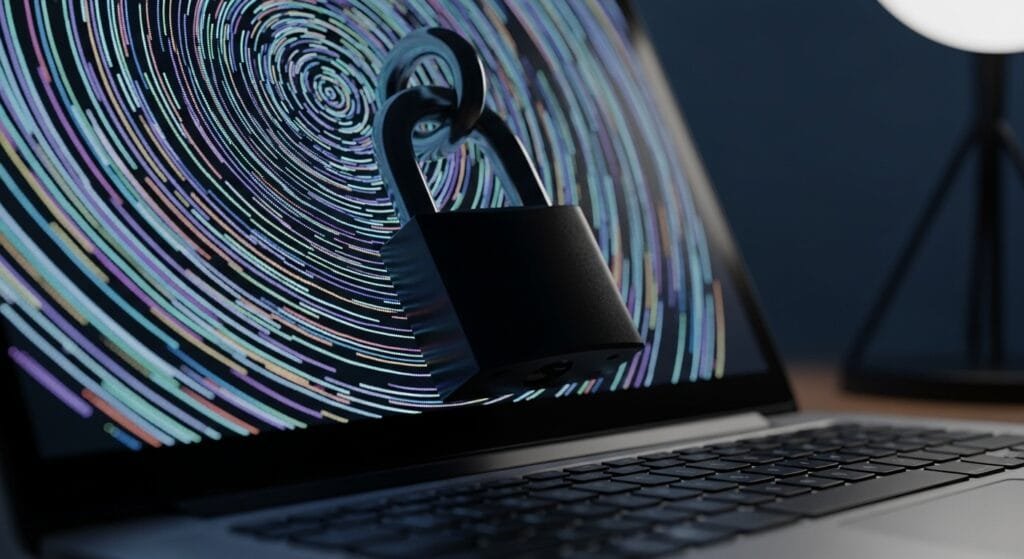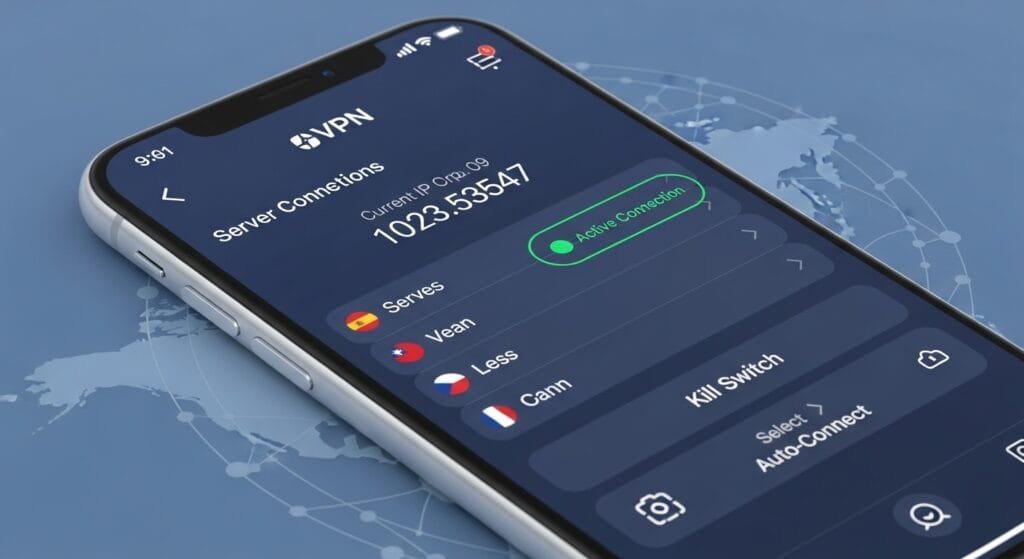Online Privacy Tips: The Ultimate Guide for Digital Safety in 2025

Table of Contents
- Why Online Privacy Matters
- What Is Online Privacy?
- Online Privacy Tips: Step-by-Step Guide
- Comparison Table: Free vs. Paid Privacy Tools
- Overcoming Common Online Privacy Challenges
- Pro Tips for Advanced Digital Safety
- FAQ: Your Online Privacy Questions Answered
- Secure Your Digital Life Today!
Why Online Privacy Matters
Ever get that creepy feeling someone’s watching your online moves? Last year, I clicked a shady ad and got spammed with sketchy emails for weeks—yikes! Learning online privacy tips saved my inbox and my peace of mind.
In 2025, with 5.3 billion internet users (Statista) and 4.4 million daily data breaches (IBM), protecting your digital life is non-negotiable. These online privacy tips help you safeguard your data, avoid scams, and browse worry-free. Whether you’re shopping, posting, or just scrolling, online privacy tips keep you safe. Ready to lock down your digital world? Let’s get started!

What Is Online Privacy?
Online privacy is like locking your front door—it keeps your personal info safe from unwanted visitors. It’s about controlling what data you share, who sees it, and how it’s used while you’re online. Think of it as your digital shield against hackers, trackers, and nosy companies.
Key terms:
- Personal Data: Info like your name, email, or location.
- Encryption: Scrambling data so only authorized people can read it.
- Tracking: When sites follow your clicks to show ads.
- Data Breach: When hackers steal your info from a site.
Why care about online privacy tips? They help you avoid identity theft, protect your finances, and maintain your freedom online. It’s like wearing a seatbelt for your digital journey!
Online Privacy Tips: Step-by-Step Guide
Here’s your beginner-friendly guide to online privacy tips in 2025. I’ve fallen for phishing scams—don’t repeat my blunders! Follow these five steps to stay secure.
1. Use Strong, Unique Passwords
Your password is your first line of defense.
- How to Do It:
- Create passwords with 12+ characters, mixing letters, numbers, and symbols.
- Avoid reusing passwords across sites (e.g., don’t use “Fluffy123” everywhere).
- Use a password manager like LastPass to store them securely.
- Why It Matters: Weak passwords are easy for hackers to crack.
I used “password123” once—cringe! A password manager made my life easier and safer.
- Beginner Tip: Create one strong password today.
- Pro Tip: Generate random passwords with tools like Bitwarden.
2. Enable Two-Factor Authentication
Add an extra lock to your accounts.
- How to Do It:
- Go to account settings on sites like Gmail or Instagram.
- Turn on two-factor authentication (2FA), requiring a code sent to your phone or app.
- Use authenticator apps like Google Authenticator for better security.
- Why It Matters: 2FA stops hackers even if they have your password.
I skipped 2FA and got locked out of my X account—nightmare! Enabling it took 5 minutes.
- Beginner Tip: Set up 2FA on one account today.
- Pro Tip: Avoid SMS-based 2FA; apps are more secure.
3. Browse Safely with VPNs and Secure Browsers
Hide your online tracks.
- How to Do It:
- Use a VPN (e.g., NordVPN) to encrypt your internet connection.
- Switch to privacy-focused browsers like Firefox or Brave.
- Enable “Do Not Track” in browser settings.
- Why It Matters: VPNs and browsers block trackers and protect your IP address.
I used public Wi-Fi without a VPN—my data was a sitting duck! NordVPN saved me.
- Beginner Tip: Try Firefox today.
- Pro Tip: Choose VPNs with no-log policies for max privacy.
4. Limit Personal Data Sharing
Less sharing, fewer risks.
- How to Do It:
- Review app permissions (e.g., does that game need your location?).
- Adjust social media privacy settings to “friends only.”
- Use temporary email addresses for sign-ups (e.g., 10MinuteMail).
- Why It Matters: Oversharing invites spam and scams.
I gave my email to a “free quiz” site—spam city! Now I use throwaway emails.
- Beginner Tip: Check one app’s permissions today.
- Pro Tip: Delete old accounts with services like JustDeleteMe.
5. Regularly Update and Monitor Your Accounts
Stay one step ahead.
- How to Do It:
- Update apps, browsers, and devices to patch security holes.
- Check for breaches with tools like HaveIBeenPwned.
- Set up alerts for suspicious account activity (e.g., Google’s security alerts).
- Why It Matters: Updates and monitoring catch threats early.
I ignored an update, and my browser got buggy—lesson learned!
- Beginner Tip: Update one app today.
- Pro Tip: Use credit monitoring for extra protection.
Comparison Table: Free vs. Paid Privacy Tools
Choosing the right tools is key for online privacy tips. Here’s how free and paid options compare:
| Tool Type | Examples | Pros | Cons | Best For |
|---|---|---|---|---|
| Free | Firefox, ProtonMail, 1Password Free | No cost, easy to use | Limited features, ads | Beginners, tight budgets |
| Paid | NordVPN, LastPass, ExpressVPN | Advanced security, support | Monthly fees ($5–$15) | Pros, frequent travelers |
Source: Wired

Overcoming Common Online Privacy Challenges
Mastering online privacy tips comes with hurdles. Here’s how to tackle pain points:
- Limited Features in Free Tools: Free VPNs like ProtonVPN have data caps. Start free, then upgrade for unlimited use.
- Data Privacy Concerns: Worried about VPNs logging data? Choose no-log providers like NordVPN. More at digitalbalaji.com/online-privacy.
- Steep Learning Curves: Privacy tools confused me at first. Watch tutorials or read guides at digitalbalaji.com/tech-tips.
- Hidden Costs: Paid tools add up. Test free trials to avoid surprises—saved me $50!
- Rapid Obsolescence: Privacy threats evolve fast. Stay updated via digitalbalaji.com/cybersecurity-trends.
I used a shady free VPN once—slow and sketchy! Paid tools are worth it.
Pro Tips for Advanced Digital Safety
Got the basics of online privacy tips? Level up with these hacks:
- Use Encrypted Messaging: Switch to Signal or Telegram for private chats. My group chats are now hack-proof!
- Set Up a Virtual Machine: Test risky apps in a sandboxed environment. Saved my laptop from a dodgy download.
- Monitor Dark Web: Use services like Experian to check if your data’s for sale. Caught a breach early!
Encrypted messaging made my chats feel like a secret clubhouse—love it!
FAQ: Your Online Privacy Questions Answered
Got Qs about online privacy tips? Here’s the scoop—snippet-ready.
What are online privacy tips?
They’re strategies to protect your personal data and stay safe while browsing.
Why is online privacy important?
It prevents identity theft, scams, and tracking, keeping your digital life secure.
What’s the best free privacy tool?
Firefox is a solid, privacy-focused browser for beginners.
How do I know if my data’s been breached?
Use HaveIBeenPwned to check if your email’s in a breach.
Should I use a VPN all the time?
Use it on public Wi-Fi or for sensitive tasks to stay safe.
Can I stay private on social media?
Yes, adjust privacy settings and limit personal info shared.
What’s new for online privacy in 2025?
AI-driven tracking and quantum encryption are rising trends.
Secure Your Digital Life Today!
Mastering online privacy tips in 2025—strong passwords, 2FA, safe browsing, limited sharing, and account monitoring—keeps your data locked tight. My spam nightmare taught me to prioritize online privacy tips. You don’t have to learn the hard way!
Start now: Create one strong password, enable 2FA, or check an app’s permissions. Got a privacy win or question? Drop a comment or DM me on X. For more digital safety hacks, visit digitalbalaji.com/cybersecurity—let’s keep your online world secure!
